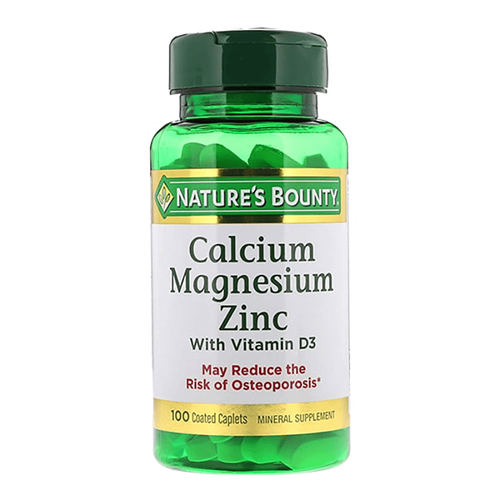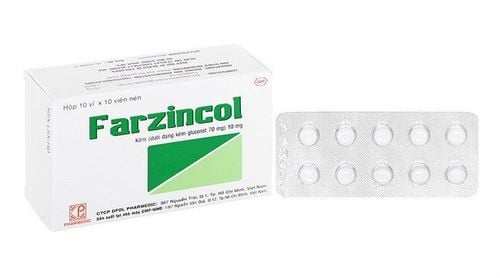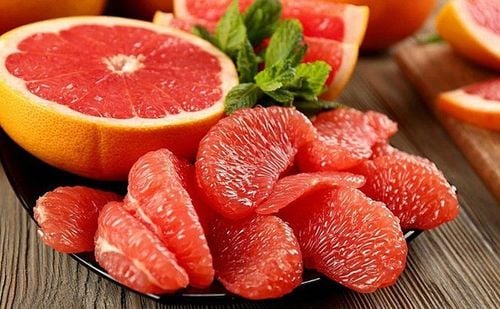This is an automatically translated article.
The article was professionally consulted by Dr., Doctor Phan Nguyen Thanh Binh - Head of the Department of Nutrition - Dietetics - Department of Pediatrics - Neonatology, Vinmec Central Park International General Hospital.Breast milk is an invaluable source of nutrients for babies during the first 6 months of life. However, after 6 months, breast milk meets only about 70% of the baby's nutritional needs, the baby's digestive system is ready to receive complementary foods. In case the child cannot fully tolerate the required meal, does not get enough milk or is malnourished, has a history of premature birth or congenital disease, etc., additional vitamins should be considered. and nutrients in the daily diet.
When taking care of a 5-6 month old baby, especially in building a baby's weaning diet, it is necessary to pay attention to providing the following vitamins and nutrients:
1. Iron
Iron is a key ingredient for making blood cells. When children enter the stage of eating protein and begin to crawl, crawl, and walk, their bodies will develop very quickly, needing a lot of iron to rapidly increase blood volume. The most easily absorbed sources of iron are from red meat and dark green leafy vegetables, legumes, and whole grains. Mothers should process these food sources in the form of a puree into soup, which is both nutritious and has an eye-catching color, suitable for increasing iron.In addition, when giving children iron-rich foods along with foods containing vitamin C, iron absorption is significantly improved. For example, the mother gives her baby citrus juices with meals to enhance iron absorption.
2. Zinc
Many studies prove that young children are more susceptible to infections when zinc is deficient. Even when children have infectious diarrhea, zinc supplementation also plays a role in quickly improving the damage to the intestinal mucosa. Zinc is found in beef, lamb, turkey, shrimp, pumpkin, sesame seeds, lentils, asparagus and yogurt. This is also a source of food that mothers can easily find and prepare for their children.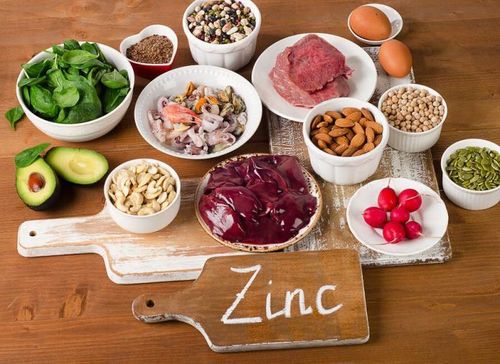
Kẽm được tìm thấy trong thịt bò, thịt cừu, gà tây, tôm, bí ngô, hạt vừng...
3. Vitamin C
Vitamin C is a very familiar vitamin to everyone. However, in young children, if parents do not train children to form a habit of eating fruit, children will be at risk of vitamin C deficiency, which manifests as easy infection, often ulcers in the oral mucosa...Sources of vitamin C are abundant in many fruits and vegetables, especially in strawberries, cantaloupe, citrus, papaya, kiwi, mango, broccoli....
4. Vitamin A
The relationship between vitamin A and eye health is well established. Children are prone to blurred vision, dry eyes, night blindness if vitamin A deficiency.Good sources of vitamin A include sweet potatoes, carrots and orange and red fruits and vegetables, dark green leafy vegetables, whole milk, fish, beef and lamb.
5. EASY Vitamins
Children's skeletal system develops rapidly during the first three years of life. This is also one of the milestones that determine a child's height in the future besides the milestone of puberty. Accordingly, the need for vitamin D is very large.In addition to regular sunbathing and outdoor physical activities for children, mothers also need to pay attention to supplementing vitamin D in their meals. Salmon, sardines, tuna, whole grains, cow's milk, yogurt, and some other dairy products are good sources of vitamin D.
The American Academy of Pediatrics recommends that infants should be supplemented with 400 IU of vitamin D in liquid form daily immediately after delivery. Even if the child is older, vitamin D supplementation should be emphasized throughout the following years and months.
6. Omega-3
When children learn to sit and crawl, the ability to observe expands, the brain constantly learns and explores the world around. Children's brain activity is constantly developing. At that time, the role of omega-3 is further promoted.To absorb omega-3, mothers need to feed their babies with a focus on foods such as catfish, sea fish and seaweed. In addition, omega-3s are also found in dry nuts such as walnuts, chia seeds and flax seeds. Mothers should puree them into the child's flour before teaching them to eat whole grains when the child is older and has awareness.
7. Vitamin B12
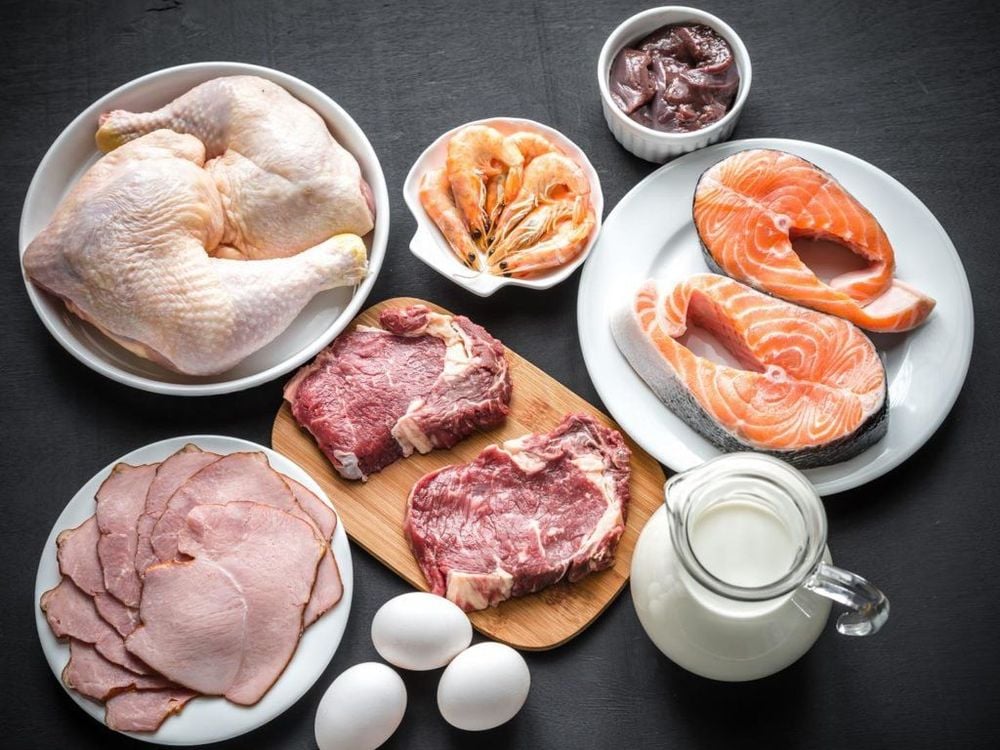
Vitamin B12 cũng là một vitamin cần thiết trong việc ngăn ngừa thiếu máu và hỗ trợ chức năng thần kinh khỏe mạnh
In these situations, vegan children need to get extra vitamin B12 from soy, cereal and milk substitutes or from multivitamin syrups.
8. Iodine
Today, iodine deficiency in regions has been somewhat limited thanks to mass media campaigns. However, if preparing meals for children without forgetting to taste the seasoning, children are still at risk of iodine deficiency.Although adding salt to baby food is very limited, the type of salt used for children should be iodized salt. In addition, iodine is also found in marine products such as seaweed and seafood.
Thus, through this article, the question of what vitamins a 6-month-old baby needs to supplement with is no longer a concern of mothers. A nutritious diet, full of ingredients, and a mother's infinite care and love will be the most solid foundation for a child to grow up day by day.
The period of baby eating solid foods is an extremely important period to help children develop comprehensively. Children who do not eat properly are at risk of micro-mineral deficiencies, causing anorexia, growth retardation, malabsorption, etc. If they notice the above signs, parents should supplement their children with supportive products. The supplement contains lysine, essential micro-minerals and vitamins such as zinc, chromium, selenium, and B vitamins to help fully meet the nutritional needs of children. At the same time, these essential vitamins also support digestion, enhance nutrient absorption, help improve anorexia, and help children eat well.
Parents can learn more:
Signs of zinc deficiency in children
Micronutrient deficiency and failure to gain weight in children
Please regularly visit Vinmec.com website and update useful information to take care of your child. Take care of the baby and the whole family.





